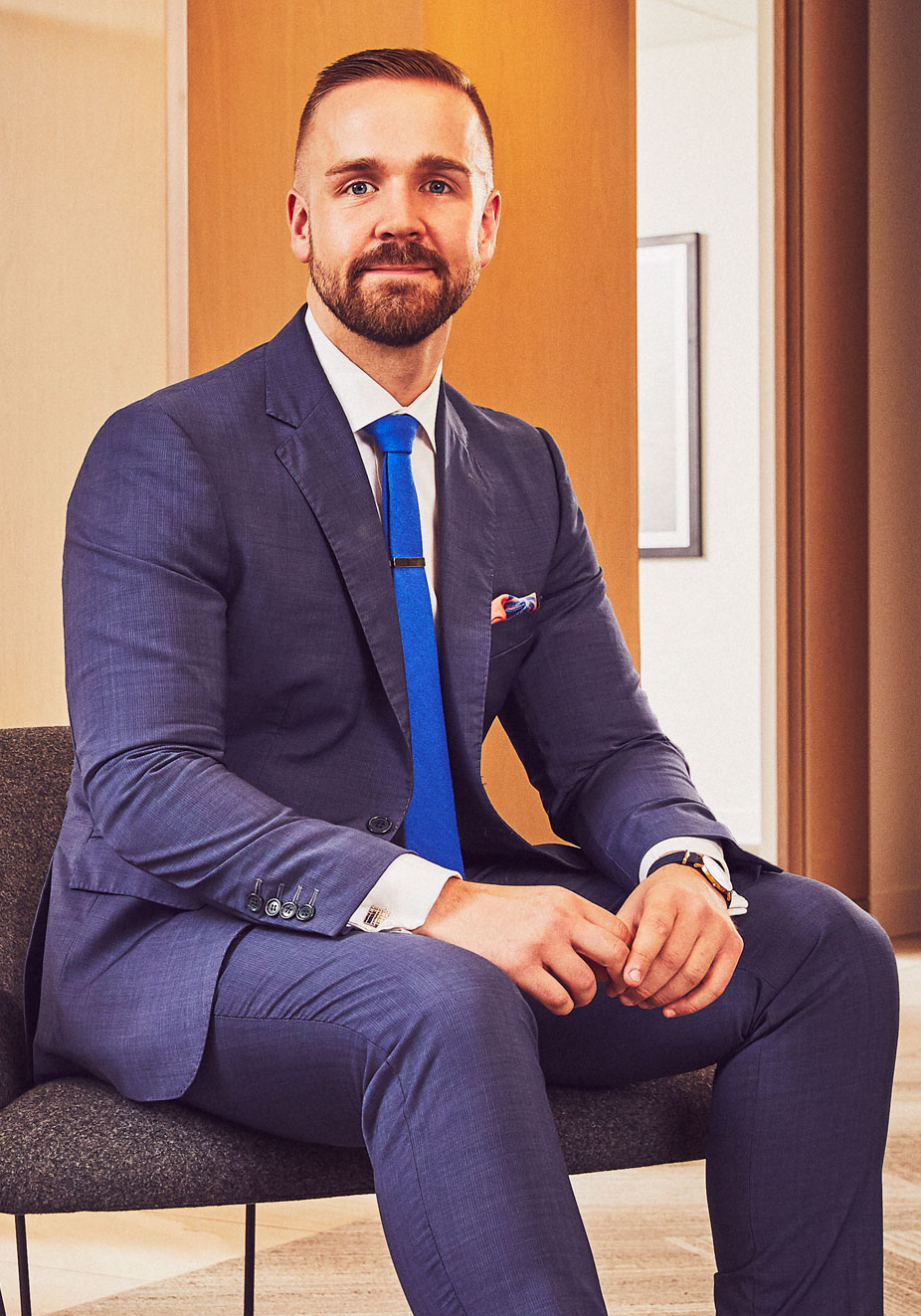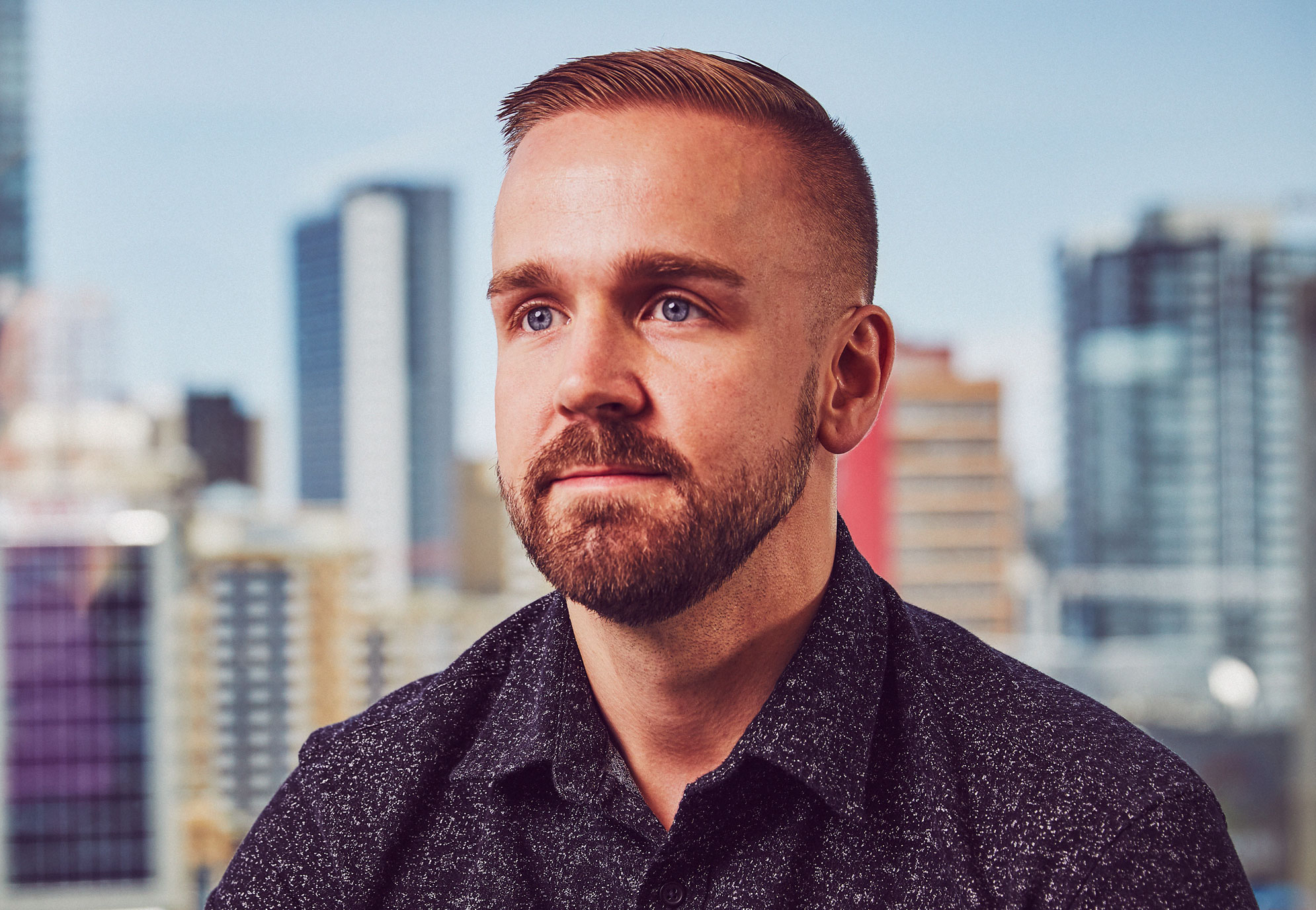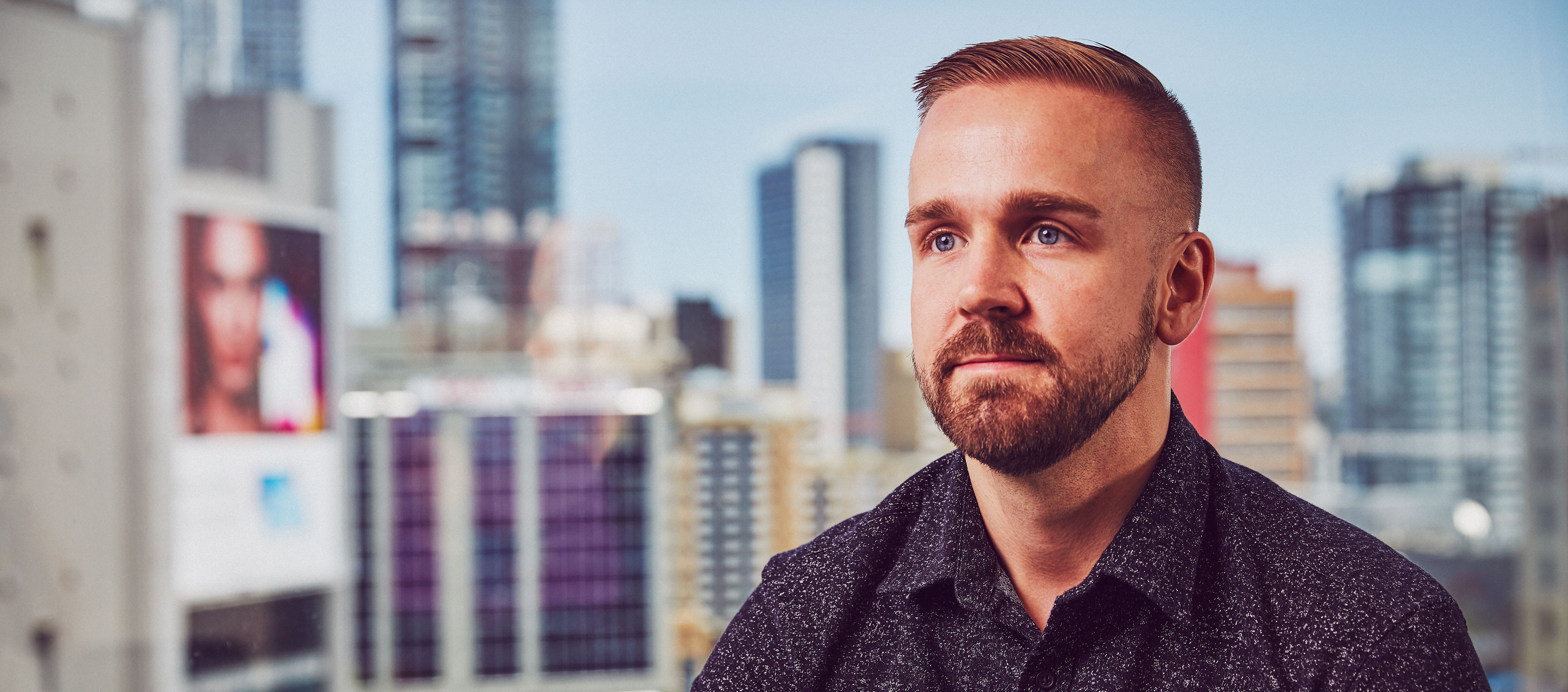Long before he became a lawyer, 30-year-old Joshua Mandryk was a fighter. In high school, he took up boxing and quickly fell in love with the sport. That enthusiasm never waned. Not as a law student at the University of Toronto. Not as an articling student at Goldblatt Partners. And not as an associate at the same firm, where he still works today. One of his pre-hearing rituals is to carefully cover up any bruises from the previous day’s sparring session.
Outside the ring, however, Mandryk is waging a different sort of battle. Like many people, Mandryk spent his adolescence in menial and service jobs — in kitchens and warehouses, on the turf crew at a golf course — where he often encountered bad bosses and unfair working conditions. But it never occurred to him that he might be able to fight back.

“I’m able to advance workers’ rights and the issues that I care about and get paid for it,” says Joshua Mandryk.
Then, in the summer after he completed his undergrad, he worked as a researcher at a construction-industry union. He was inspired by the organization’s work on behalf of its members. And when he started law school the next year, he had a plan: to protect workers across the country as a lawyer. That would combine his long-time passion for social justice with the ideals of the labour movement.
He began to see workplace exploitation everywhere. Including at his local gym. Mandryk was a member at GoodLife Fitness, the largest health-club chain in Canada. Over time, he realized that the company wasn’t fairly paying its fitness staff and personal trainers.
Mandryk thought he could help. In the spring of 2015, he was an articling student in the labour and employment group at Goldblatt Partners, a human-rights firm in Toronto. Despite his junior station, he went to his bosses and made a bold request. He wanted to launch a class-action lawsuit against GoodLife.
For the record, this is not normal. Technically, Mandryk wasn’t even a lawyer yet. But Christine Davies, now a partner at the firm, took him under her wing and helped him prepare his formal pitch to pursue the lawsuit. This document needed to be particularly persuasive because class actions are so financially risky: they have enormous upfront costs and only turn a profit after a settlement. “It’s uncommon for a student to show this level of motivation,” says Davies. “He showed a level of excellence that very few students demonstrate.”
The firm gave Mandryk the green light. In October 2016, as an associate, he officially filed the lawsuit, and the case proceeded at a breakneck pace. These class actions can take up to a decade to conclude, but it took Mandryk less than two years to win an $8.5-million settlement. GoodLife, for its part, implemented several reforms, including a promise to pay trainers for class-preparation and administrative tasks, work that previously went unremunerated. “We really can transform industries,” says Mandryk. “It’s not easy, but the first step is reminding people that it’s possible.”
Mandryk’s early success has emboldened him to help other precarious workers using similar tactics. Most of his practice is dedicated to union-side labour work, but he’s currently handling six major class-action lawsuits. He is part of a team engaged in ongoing litigation against organizations like Flight Centre and the Ontario Hockey League. The media have provided national coverage of these cases, transforming Mandryk into one of the most notable class action lawyers in the country. “A lot of people say they’re interested in making the world a better place,” says Lindsay Lawrence, a partner at the firm who mentors Mandryk. “But Josh really is.”
Mandryk is more modest when he talks about these cases and his role in them. “I’m just proud to be a part of it,” he says. Maybe that has something to do with his time in the ring, a place where he learned both humility and tenacity. “There’s nothing more stressful than waiting to walk out for a fight,” says Mandryk. “It’s a mix of stage fright and legitimate fear of physical harm. I’ve never been that intimidated by a big case, and that’s because I figure I’ve been through worse: trying not to get beaten up with my mom in the audience.”

Timeline of a labour and employment lawyer
2007-08: In his first year at the University of Guelph, where he studied political science, Mandryk fights in three amateur boxing competitions — the Brampton Cup, the Arnie Boehm Tournament and Ray McGibbons Glove — and wins them all.
2011: He starts law school at the University of Toronto.
2013: Mandryk becomes the co-chair of Students Against Unpaid Internship Scams, a province-wide group that lobbies the Ontario government to take action on unpaid student internships.
2014-15: He articles at Goldblatt Partners. At the end of his articling term, he becomes the executive director of the Canadian Interns Association. In that role, he coauthors the Canadian Intern Rights Guide, a handbook on workplace rights for interns in each province.
2015: Mandryk becomes an associate in the labour and employment group at Goldblatt Partners. “I’m very fortunate to do what I love,” he says. “I’m able to advance workers’ rights and the issues that I care about and get paid for it.”
2019: As a fourth-year associate at the firm, Mandryk is now working alongside a team of other lawyers on a half-dozen class actions on behalf of workers.
This story is from our Fall 2019 Issue.
Photography by Jason Gordon


